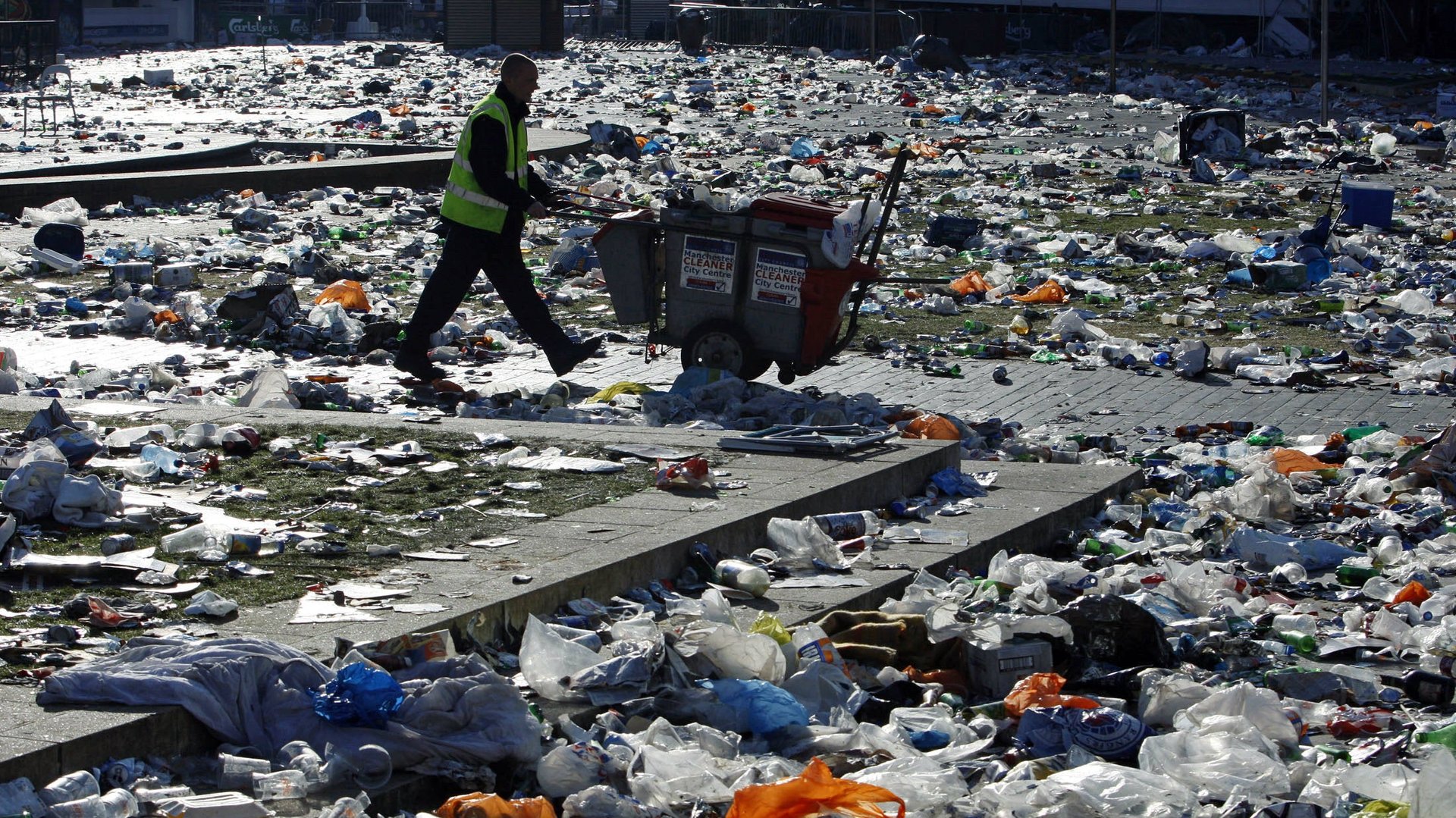Another cost of Brexit: UK waste companies are paying more for Europe to treat their trash
The association for British waste-management companies has some concerns about Brexit. Its members send some 3 million metric tons of refuse every year to European facilities for treatment, and with the pound’s slide since last year’s referendum, their euro-denominated contracts are getting more expensive.


The association for British waste-management companies has some concerns about Brexit. Its members send some 3 million metric tons of refuse every year to European facilities for treatment, and with the pound’s slide since last year’s referendum, their euro-denominated contracts are getting more expensive.
That’s not the only concern that Jacob Hayler, executive director of the Environmental Services Association, laid out to a group of Harvard researchers looking into the effects of Brexit on small- and medium-sized UK firms. There’s also a concern about whether future UK policy will align with current EU targets for recycling and municipal waste.
The waste industry is just one of the UK sectors concerned about the pending divorce. The Harvard report—its authors include former Standard Chartered CEO Peter Sands and former UK shadow chancellor Ed Balls—surveyed 50 representatives of small- and medium-sized UK companies from a range of sectors, and just about every one of them said they would prefer to stay in Europe’s single market, which is the world’s largest and accounts for about half of the UK’s trade.
Last year’s Brexit result was, among other things, seen as a rebuke to global multinational elites, and a second-chance for those with less privilege. By that measure, Brexit is failing, according to Adolfo Laurenti, a Zurich-based global economist at Bank J. Safra Sarasin. There will be some winners—a weaker pound makes London a better shopping destination for foreign tourists, and big, UK-based multinational companies will benefit. But smaller firms in cities without tourism, which tended to vote for Brexit, will probably be worse off, Laurenti said.
The companies interviewed in the Harvard study were also skeptical that the UK could replace its old relationship with the EU by negotiating better deals with other countries on its own. Right now the UK has fairly low tariffs, or no tariffs, with nations like the US and Korea because of their free-trade agreements with the European bloc. Still, it wasn’t all gloom: Firms surveyed thought Brexit could be a positive by harmonizing regulation and helping smaller companies access new markets.
While the pound’s decline last week was less severe than some forecasts, given the UK’s hung parliament and the uncertainty is creates for the economy, British sterling has fallen about 13% since the Brexit vote a year ago. Further currency weakness—and the strength of the UK’s economy for years to come—will depend on how well the UK handles negotiations with the EU that are due to start on June 19.
The UK waste sector employs 106,000 and accounts for about £11 billion in yearly revenue, according to the industry trade group. The 3 million metric tons of waste is mostly materials like plastic and is used for energy. The study didn’t say how much extra the pound’s decline is costing the UK waste management industry, but it could be worse—at least their EU contracts aren’t denominated in dollars.